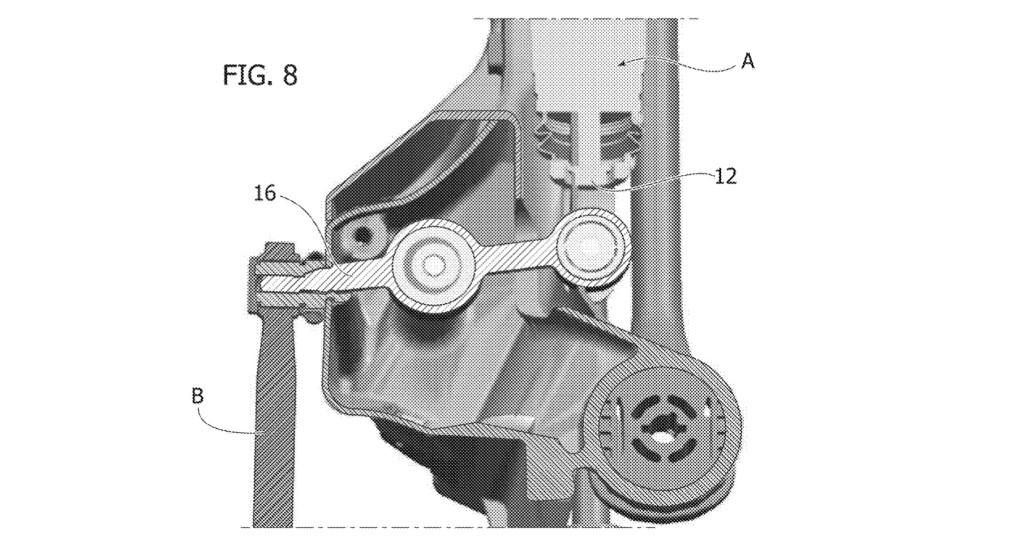A patent filing hints that Stellantis may be the next automaker to adopt a rear-wheel-steering system.
Several automakers already offer rear-wheel steering on a variety of vehicles, but Stellantis’ patent application, published in April 2022 by the United States Patent and Trademark Office (USPTO), claims improvements over current systems.
Stellantis rear-wheel steering system patent image
Like other systems, the application discusses using a linear electric motor (otherwise known as an actuator) to manipulate arms attached to the wheels for steering, in conjunction with a multi-link rear-suspension system. However, in the application, Stellantis claims connecting these arms directly to the wheels forces them to be positioned at an awkward angle in order to clear a differential in internal-combustion vehicles, or a rear-mounted electric motor in EVs.
Stellantis’ proposed solution is a transmission between the actuator and each rear wheel. Rods connect the actuator to the transmission, which in turn is connected to the wheel by control arms. Those arms can thus be positioned at angles better suited for optimal suspension geometry, according to the patent application.

Stellantis rear-wheel steering system patent image
Rear-wheel steering currently appears on vehicles ranging from the Mercedes-Benz EQS to the Porsche 911, and is used to enable tricks like the GMC Hummer EV’s CrabWalk mode or the tank turn feature previously shown for the Rivian R1T.
When it comes to possible applications for Stellantis’ proposed rear-wheel-steering system, an electric pickup seems more likely than a luxury sedan or sports car. The Ram 1500 Revolution Concept shown in January at CES had this feature, although it hasn’t been confirmed for the production Ram 1500 REV just yet. Ford also filed a rear-wheel-steering patent application for its F-Series pickup trucks a few years ago, so using this system in a pickup would help Stellantis keep up with its old rivals.
